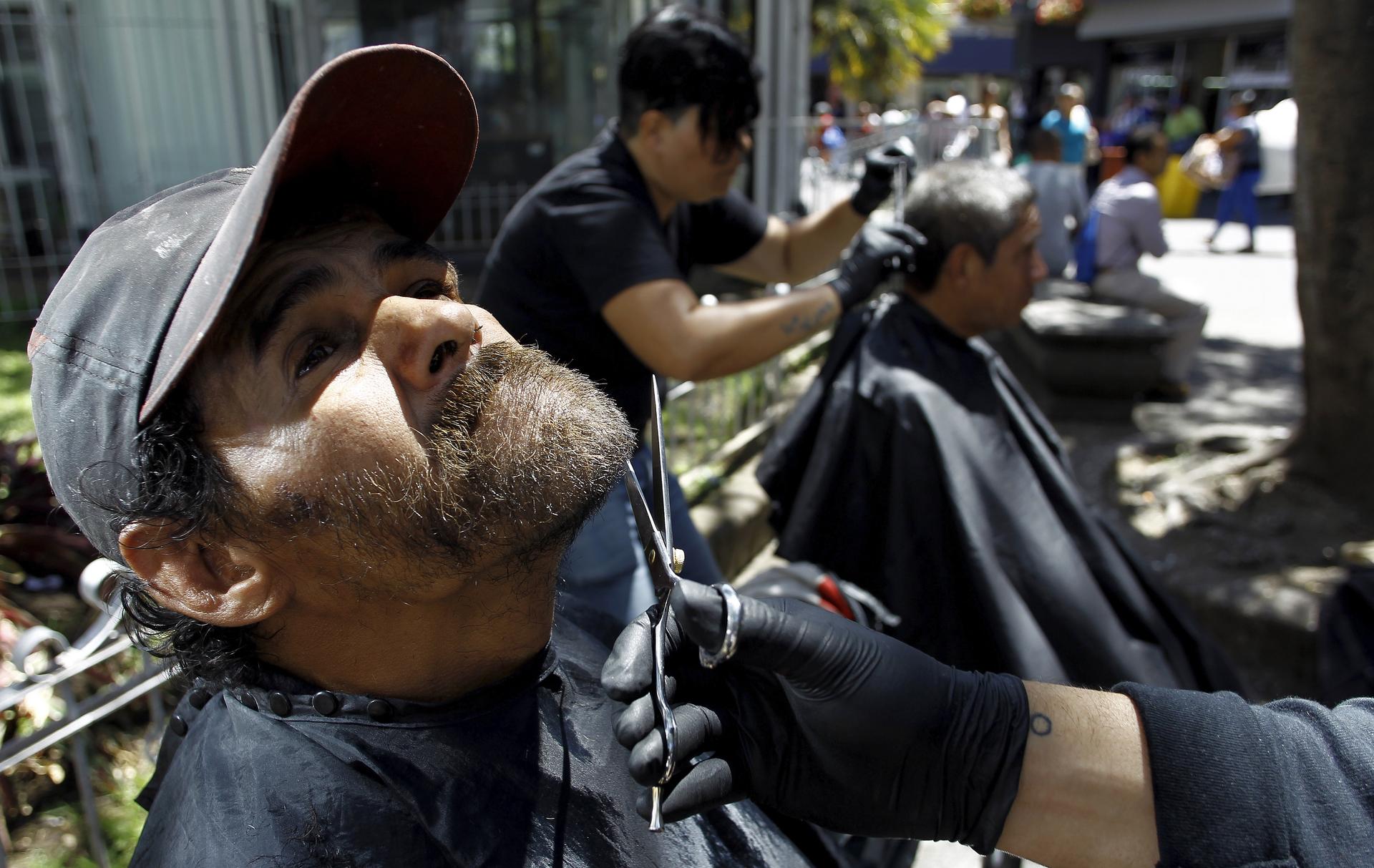Cities have found a better way to reach the homeless: Services on wheels
A volunteer from the social work community "Friends of the World" trims the beard of a homeless man in San Jose, Costa Rica February 24, 2016.
Many people consider access to “adequate housing” a basic human right — the United Nations does, too — and yet it’s one that millions of people don't enjoy.
In Australia, a new mobile laundry service is doing its part to improve the daily lives of people stuck on the streets.
The UN estimates there are 100 million homeless people around the world. In the United States alone, more than 500,000 people are without shelter on any given day.
Forced evictions, mental illness, unemployment, drug addiction and family disputes are some of the many reasons people become homeless. Social services can help prevent and end some cases, but the reality is that too many people remain on the streets and in shelters.
One of the chronic challenges that many homeless people describe: keeping up their personal hygiene, which is critical for staying healthy as well as maintaining self-esteem and finding a job.
That's where Orange Sky Laundry is stepping in.
The mobile laundry service in Australia washes and dries the clothes of homeless people for free.
The organization was started by Lucas Patchett and Nicholas Marchesi in the Queensland city of Brisbane in July 2014, and it has since spread to most major cities across the country.
Each van is fitted with two industrial washing machines and driers that can clean 44 pounds of clothes every hour.
Orange Sky Laundry targets areas that are also serviced by food vans so people can eat and talk while waiting for their clothes to be washed.
"We carry all our own water and power which means we can wash and dry clothes anywhere. We've got over 450 volunteers across Australia and every day they run our service," Marchesi told the ABC.
Orange Sky's mobile laundromat is just one example of ways government and non-governmental organizations around the world are working to help homeless people access hygiene services.
Here are a few others:
Free showers
In Paris, a specially adapted camper van called La Mobil’douche Depaul can be seen driving around the streets of the French capital providing free showers. A similar service operates in San Francisco. Lava Mae has converted decommissioned city buses into mobile bathrooms. Each bus provides 2,000 showers a week.
Free haircuts
Three hairstylists in the Spanish city of Madrid were inspired by an Australian hairdresser to spend their Sundays offering free haircuts to homeless people.
While their locks are being trimmed, clients are encouraged to tell their stories, giving rise to the hashtag #UnCorteUnaHistoria (a cut and a story).
Free sanitary products
Three advertising interns in London launched an online petition last year calling on the UK government to provide funding to homeless shelters so they can offer free sanitary pads and tampons to women.
“This initiative believes that tampons and towels should be made available through homeless shelters, the same way the government provides condoms,” the Change.org campaign states. "Help the Homeless on their Period" has gathered more than 111,000 signatures so far.
The Melbourne Period Project in Australia also organizes drop-off points for people wanting to donate sanitary products, which are then distributed to women through homeless services. Other cities are catching on.
Every day, reporters and producers at The World are hard at work bringing you human-centered news from across the globe. But we can’t do it without you. We need your support to ensure we can continue this work for another year.
Make a gift today, and you’ll help us unlock a matching gift of $67,000!
